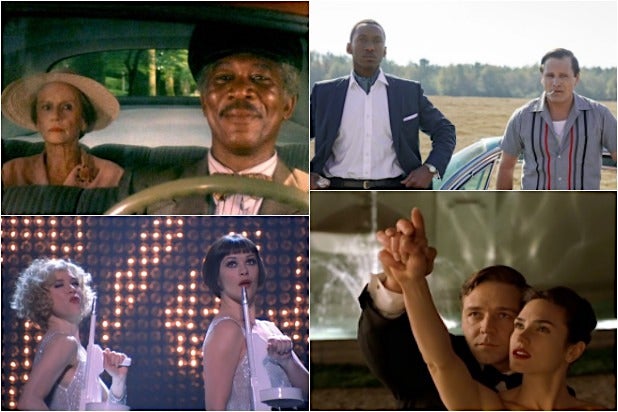Cicely Tyson Remembered by Zendaya and More: 'Rest in Great Power'
“Sounder” and “The Help” actress died at age 96 on Thursday
By now, we all know that the film the Academy selects as the “Best Picture” of any given year is rarely the actual Best Picture, but some years it’s hard to explain why they picked what they picked. Nevermind “Shakespeare in Love” beating “Saving Private Ryan,” because at least “Shakespeare in Love” is a handsome production with a witty script. Nevermind “Dances with Wolves” beating “Goodfellas,” because at least “Dances with Wolves” is a respectable western.
We’re taking a look at the films that we can’t watch, even in a vacuum, without cringing nowadays. And when you compare them with the nominees that didn’t earn the Oscar, it’s just plain hard to justify why the Academy voted the way it did.
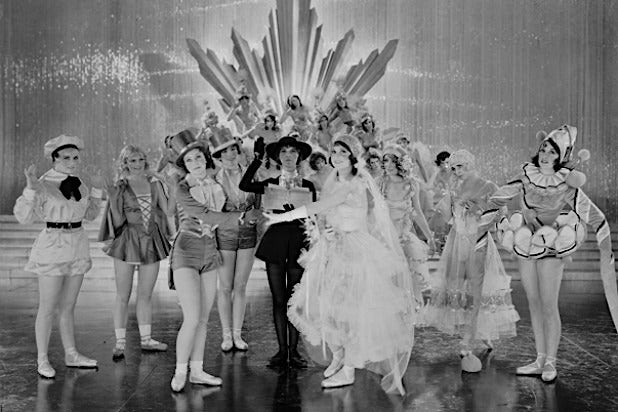
“The Broadway Melody” (1929)
The second Best Picture winner, and the first synch sound movie to win the top prize, was innovative for the time. Musicals were finally breaking into movie theaters, and “The Broadway Melody” even includes a sequence in Technicolor (which is now, sadly, lost). Unfortunately, the actual film is a drab melodrama with repetitive musical numbers and a cad of a leading man who gets between two performing sisters, neither of whom deserve to get stuck with the manipulative jerk.
The competition wasn’t fierce at the second Academy Awards, and “The Broadway Melody”‘s historical significance no doubt played a factor, but Roland West’s inventive and thrilling crime drama “Alibi” makes a bigger impression after all these years.
MGM
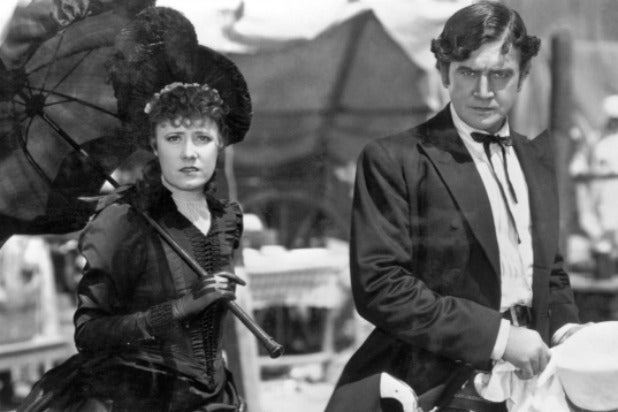
“Cimarron” (1931)
Edna Ferber’s sweeping novel “Cimarron” becomes a frustratingly straightforward but handsomely produced motion picture about a heroic pioneer, Yancey Cravat (Richard Dix), and his disapproving wife Sabra (Irene Dunne), as they each play a part in transforming America’s frontier into a sprawling metropolis. Outstanding production design, innovative camerawork and a great performance by Dunne can’t make up for the film’s maudlin, condescending and — despite a few efforts to the contrary — pretty darned racist storytelling.
“Cimarron” faced stiff competition at the 4th Academy Awards, with “The Front Page” telling a witty and wonderful story (later remade as the even-better “His Girl Friday), but in retrospect, the nominee that stands out the most is “Skippy,” the first comic adaptation ever nominated for Best Picture, which is wonderfully funny and affecting.
RKO
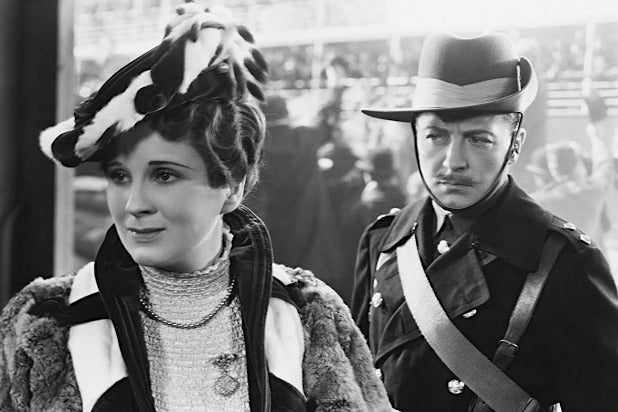
“Cavalcade” (1933)
Frank Lloyd’s ambitious multigenerational story “Cavalcade” follows a British family at the turn of the century, as the major events of then-recent history affect and redirect their destinies. It’s a big swing, dramatically speaking, but the film’s many twists and turns are often laughable; the tragic moment when two lovers plan their futures, only to leave the frame and reveal that they’re on the Titanic, is an unintentional hoot.
There were 10 nominees for Best Picture in 1933, and no shortage of timeless classics including “42nd Street,” “I Was a Fugitive from a Chain Gang,” “Little Women” and “The Private Life of Henry VIII.”
Fox Film Corp
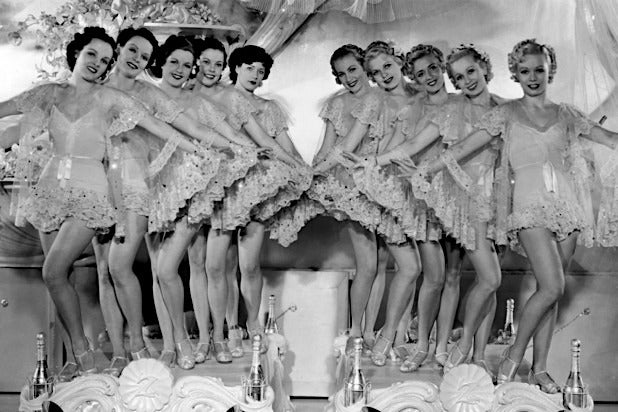
“The Great Ziegfeld” (1936)
The life of legendary theater producer Florenz Ziegfeld Jr., played by William Powell, is the subject of the first biopic to win Best Picture. But although Robert Z. Leonard’s film does a fantastic job of recreating the grandeur of Ziegfeld’s productions — including one show-stopping musical number that cost $220,000 at the time (nearly $4 million today) — the actual drama is a sanitized, padded and implausibly fawning version of Ziegfeld’s life. And even at that, he still comes across like a lout.
Competition at the 9th Academy Awards was hardly the fiercest, but Frank Capra’s “Mr. Deeds Goes to Town” is just as wry and pointed today as it was in 1936, and sets the framework for many of the great filmmaker’s future melodramatic crowdpleasers.
MGM

“Gentleman’s Agreement” (1947)
Well-intentioned but stodgy to the point of corniness, “Gentleman’s Agreement” stars Gregory Peck as a reporter tasked with writing about anti-Semitism in New York City, who decides to impersonate a Jewish man to experience the discrimination firsthand. Predictable and painfully mishandled, by focusing on a white man’s awakening instead of the genuine experience of the people the film purports to vaunt, even Peck himself later admitted it was dated, and director Elia Kazan said he wasn’t happy with it.
“Gentleman’s Agreement” was up against several time-honored classics at the 20th Academy Awards, including David Lean’s “Great Expectations” and two Christmas classics, “Miracle on 34th Street” and “The Bishop’s Wife.”
20th Century Fox
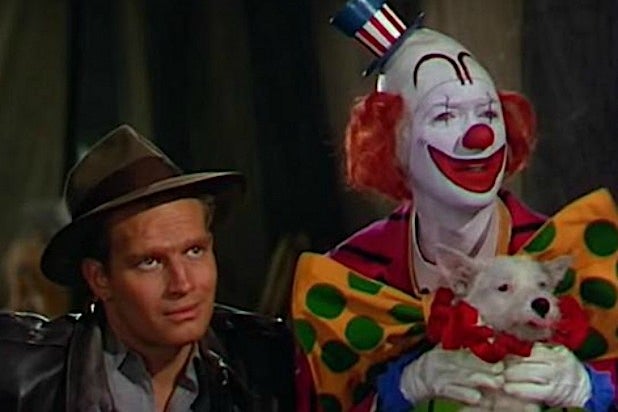
“The Greatest Show on Earth” (1952)
Big, broad and Technicolor, there’s no denying that Cecil B. DeMille’s circus melodrama “The Greatest Show on Earth” was a spectacle, but Best Picture of the year? Of any year? This forgettable spectacle, which stars Charlton Heston as a ringleader desperately trying to keep the show running, and James Stewart as a circus clown who’s actually a doctor on the lam for killing his wife (to end her suffering), is one of the strangest footnotes in Best Picture history.
Especially when you consider that “The Greatest Show on Earth” was up against at least two absolutely phenomenal motion pictures: John Ford’s beautifully romantic “The Quiet Man” and Fred Zinnemann’s politically charged western “High Noon.”
Paramount
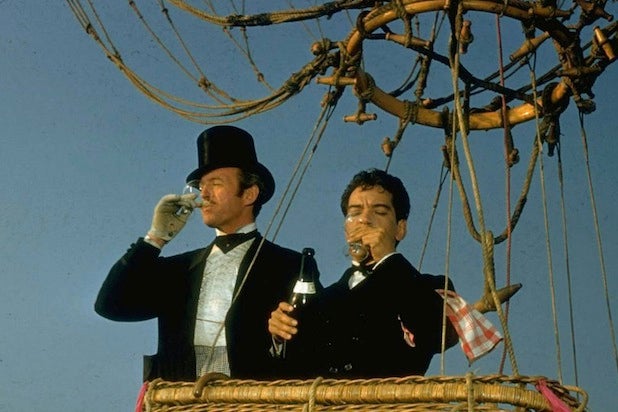
“Around the World in 80 Days” (1956)
Speaking of spectacle, “Around the Word in 80 Days” is one of the biggest productions in Hollywood history, which spans the whole globe, includes an astounding number of cameos (blink and you’ll miss Frank Sinatra), and boasts incredibly gorgeous widescreen cinematography. Unfortunately, it’s also an insubstantial and cloyingly colonialist adventure starring David Niven and iconic Mexican comedian Cantinflas as travelers trying to complete the legendary journey just to win a bet. (The less said about casting Shirley MacLaine as an Indian princess, the better.)
“Around the World in 80 Days” somehow bested several incredible Best Picture nominees to take the top prize at the 29th Oscars, including “The Ten Commandments,” “The King and I” and “Giant.”
United Artists
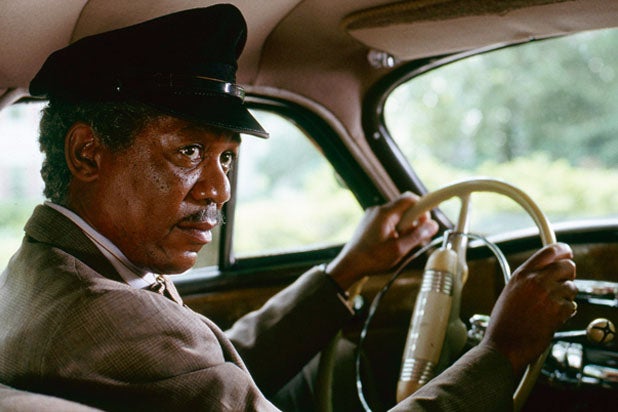
“Driving Miss Daisy” (1989)
Skipping ahead a bit, we get to one of the most mind-boggling Best Picture winners. “Driving Miss Daisy” is an aggressively safe portrayal of race relations in America, in which a bigoted old lady, played by Jessica Tandy, gradually learns to be less bigoted because her chauffeur, played by Morgan Freeman, is nice. “Driving Miss Daisy” isn’t the worst film to win Best Picture, since the performances certainly are excellent, but there’s a solid argument to be made that it’s one of the most trite motion pictures to take home the award.
“Driving Miss Daisy” was up against several classic films at the 62nd Academy Awards, including “Field of Dreams,” “Born on the Fourth of July” and “Dead Poets Society.” But perhaps the greatest injustice is that Spike Lee’s incendiary and fiercely intelligent “Do the Right Thing” wasn’t even nominated.
Warner Bros.
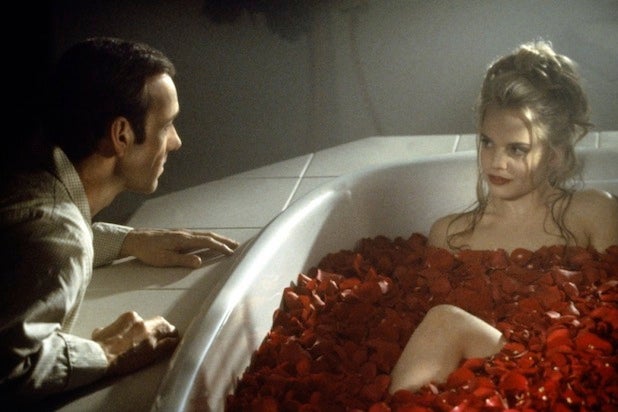
“American Beauty” (1999)
Over 20 years later it’s become clear that 1999 was one of the best years for movies in the history of the medium, with dozens of influential, trailblazing and daring motion pictures premiering within 12 months. At the time it seemed like “American Beauty” was one of them, but history has not been kind; Sam Mendes’ melodrama about mid-life crises and suburban meltdowns offers strong performances and excellent cinematography, but it’s contrived and self-congratulatory to bizarre extremes.
It’s hard to believe today that “American Beauty” was considered the standout film in a year that gave us “The Insider” and “The Sixth Sense,” both of which were nominated for Best Picture, not to mention noteworthy, non-nominated classics like “The Matrix,” “Fight Club,” “All About My Mother,” “Eyes Wide Shut,” “Three Kings” and “Toy Story 2,” to name just a few.
DreamWorks
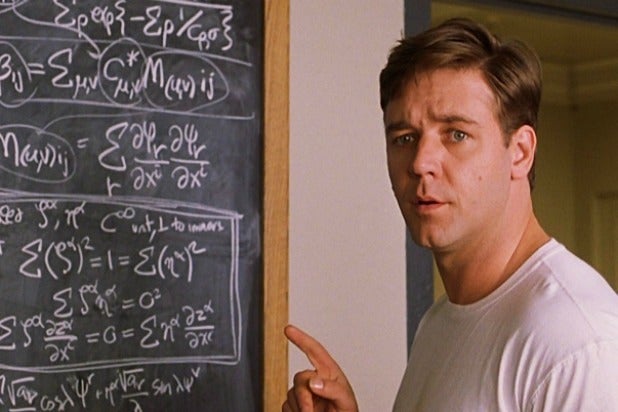
“A Beautiful Mind” (2001)
Ron Howard’s glossy biopic of famed economist John Nash has been bleached clean of the subject’s many imperfections. But the biggest issue with “A Beautiful Mind” isn’t its Hollywood-ized portrayal of Nash, it’s the absolutely mawkish manipulations with which Howard and screenwriter Akiva Goldsman take him through his life story. Though excellently filmed and acted, “A Beautiful Mind” hammers its way through one biopic cliché after another, until you either cave in and accept its ham-fisted storyline or you reject it outright.
The 74th Academy Awards had an otherwise excellent crop of Best Picture nominees too, including “The Lord of the Rings: The Fellowship of the Ring,” “Gosford Park” and “Moulin Rouge!”
Universal
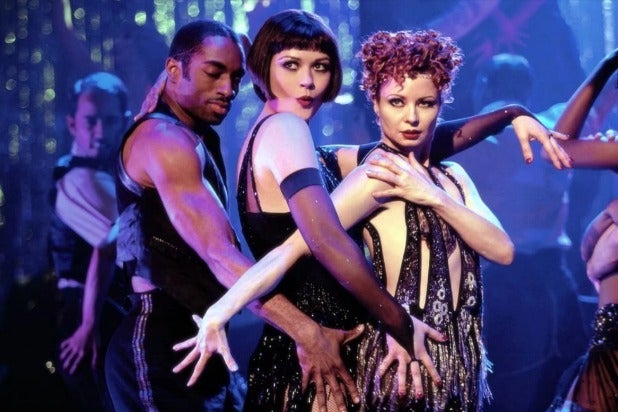
“Chicago” (2002)
Rob Marshall’s attractive but messy adaptation of the hit Broadway musical “Chicago” features flashy and exciting performances from Catherine Zeta-Jones, Renée Zellweger and Queen Latifah. But Marshall’s determination to play each musical number like a dream sequence makes “Chicago” seem ashamed of its theatrical roots, and the cacophonous editing — which tries to but doesn’t successfully hide the fact that co-star Richard Gere is out of his depth on the dance floor — makes it a genuinely difficult watch for fans of singing, dancing, narrative storytelling, and/or “Chicago.”
“Chicago” was up against an odd crop of films at the 75th Academy Awards, including “The Pianist,” “The Hours,” “The Lord of the Rings: The Two Towers” and “Gangs of New York,” the latter two of which were — at least — more assured and impressive productions.
Miramax
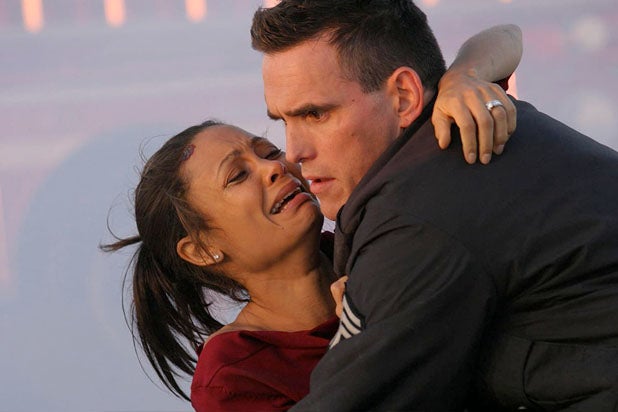
“Crash” (2005)
Good intentions strike again in the unbelievably phony and smug montage movie “Crash,” which follows a series of interconnected characters and stories in Los Angeles. The problem is, every single storyline relies so completely on forced irony that none of the movie works; even the handful of subplots that would be strong in a vacuum fall flat because they’re lumped in with all the hammy other ones. The last thing you want in a film about serious issues is a sense of absolute insincerity.
“Crash” rather notoriously defeated the groundbreaking romance “Brokeback Mountain” at the 78th Academy Awards, but even the less-popular other nominees — “Capote,” “Munich” and “Good Night and Good Luck” — play more convincingly today.
Lionsgate

“The King’s Speech” (2010)
There’s nothing terribly wrong with Tom Hooper’s “The King’s Speech”; there’s just nothing particularly good about it either. It’s a sweet biopic about how King George VI strived to overcome his lifelong stutter in order to confidently lead his people with radio addresses during World War II, a novel storyline that Hooper and his excellent cast mine for drama and comedy. But the film is undeniably safe, a reassuring trifle that neither pushes the medium nor its cast in any meaningful way.
Compare “The King’s Speech” to some of the other, more daring nominees at the 83rd Academy Awards and you begin to see how little Hooper’s film stands out. After all, this was the movie that beat “Black Swan,” “Inception,” “The Kids Are All Right,” “Toy Story 3,” “Winter’s Bone” and “The Social Network” for Best Picture?
The Weinstein Company

“Green Book” (2018)
Time hadn’t been kind to “Green Book” even before it won Best Picture, when critics, social commentators and the family of jazz pianist Don Shirley initially complained that the film whitewashes his story, gives undue credit to his white chauffeur for teaching him about his own culture, and falls back on condescending storytelling tropes from yesteryear. (See: “Gentleman’s Agreement,” “Driving Miss Daisy,” etc.)
In other words, “Green Book” didn’t hold up from day one, especially compared to bolder, more challenging and exciting nominees that tackled similar issues, like “BlacKkKansman” and “Black Panther,” or other impactful storylines, like “Roma” and “The Favourite,” or just good melodramas that didn’t feel so uncomfortably backward, like “A Star Is Born.”
Universal
Some Oscar winners stand the test of time — these, not so much
By now, we all know that the film the Academy selects as the “Best Picture” of any given year is rarely the actual Best Picture, but some years it’s hard to explain why they picked what they picked. Nevermind “Shakespeare in Love” beating “Saving Private Ryan,” because at least “Shakespeare in Love” is a handsome production with a witty script. Nevermind “Dances with Wolves” beating “Goodfellas,” because at least “Dances with Wolves” is a respectable western.
We’re taking a look at the films that we can’t watch, even in a vacuum, without cringing nowadays. And when you compare them with the nominees that didn’t earn the Oscar, it’s just plain hard to justify why the Academy voted the way it did.
Source: Read Full Article
